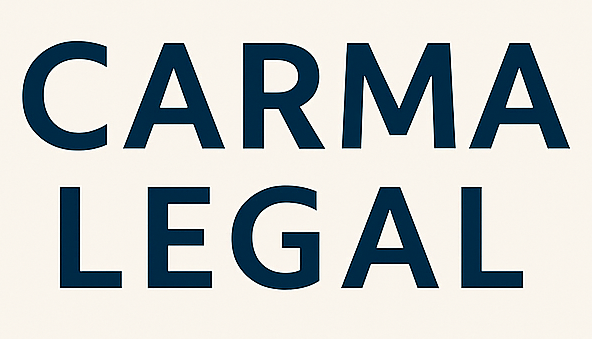Understanding wrongful death claims
When a loved one dies due to another party’s negligence, you may have grounds for a wrongful death claim. In general, wrongful death actions arise when someone dies from medical malpractice, car accidents, workplace incidents, or defective products. For example, in 2018 the National Highway Traffic Safety Administration reported 33,654 fatal motor vehicle accidents [1]. Similarly, Johns Hopkins University estimates that one in 10 deaths results from medical errors during treatment [1].
Eligibility to pursue a claim varies by state. Spouses, children, and sometimes parents or dependents qualify to file suit. Each jurisdiction sets its own rules on who can sue and the timeframe for filing. Understanding these requirements is critical, because missing a deadline can permanently bar your right to seek justice and compensation [2].
Common wrongful death causes
- Motor vehicle collisions
- Medical negligence and surgical errors
- Workplace accidents and industrial incidents
- Defective products and consumer goods
- Premises liability and unsafe property conditions
Knowing the circumstances that give rise to a wrongful death lawsuit helps you and your attorney build a strong case.
Quantifying potential compensation
A skilled compensation lawyer for wrongful death can help you calculate both economic and non-economic damages. Recoverable amounts depend on factors such as the deceased’s age, earning capacity, and the extent of financial support they provided to your family [3].
| Type of damage | Examples |
|---|---|
| Economic damages | Medical bills, funeral expenses, lost wages, loss of future earning capacity |
| Non-economic damages | Pain and suffering, loss of companionship, emotional distress, loss of guidance |
| Punitive damages | Additional compensation when conduct was willful or egregious |
- Economic damages are straightforward to document with bills, pay stubs, and expert testimony.
- Non-economic damages compensate your family’s emotional and psychological losses. You may also pursue survivor benefits through a specialized survivor benefits claim lawyer.
- In cases of particularly reckless behavior, a court may award punitive damages to deter similar misconduct in the future.
Your attorney will collect financial records, consult life-care planners for future needs, and work with economists to establish a clear valuation. They can also seek support for a loss of consortium claim attorney if your family’s spousal or parental relationship was affected.
Selecting legal expertise
Choosing a lawyer with proven experience in wrongful death litigation is essential. These cases demand a nuanced understanding of personal injury law and the capacity to handle complex evidence.
- Experience handling wrongful death cases
Firms that focus on fatal claims have honed their skills in proving negligence, negotiating with insurers, and taking cases to trial when necessary [4]. - Knowledge of state-specific laws
Statutes of limitations and eligible claimants differ across states. A local attorney will know deadlines and filing requirements to protect your rights. - Investigative abilities and resources
Top firms deploy accident reconstruction specialists, medical experts, and private investigators to gather compelling evidence. - Strong negotiation and trial skills
Most wrongful death suits settle before trial, but your attorney must be prepared to litigate if negotiations stall.
Evaluating a firm’s track record—verdicts and settlements—helps you select counsel capable of securing maximum compensation for medical costs, lost income, and your family’s emotional losses.
Navigating the case process
Working closely with your lawyer, you will move through a series of defined steps. Familiarity with this process can ease your concerns and set realistic expectations.
- Initial consultation
You and your attorney discuss the facts, potential legal strategies, and fee structures. - Evidence gathering
Investigators collect police reports, medical records, and witness statements to build your case. - Filing the lawsuit
Your lawyer drafts and files a complaint in the appropriate court within the state’s statute of limitations. - Discovery phase
Both sides exchange documents, depose witnesses, and consult experts to assess strengths and weaknesses. - Settlement negotiations
Attorneys negotiate with insurers or opposing counsel to reach a fair resolution. You may work with a wrongful death settlement attorney during this stage. - Trial preparation
If a settlement cannot be reached, your counsel readies witness lists, exhibits, and legal arguments. - Trial and verdict
A judge or jury evaluates evidence and decides on compensation. - Appeals
Either party may seek review if there are legal errors in the trial proceedings.
According to one firm’s outline of steps in a wrongful death claim, you should expect clear milestones and frequent updates throughout this journey [5].
Assessing attorney services
Not all personal injury lawyers provide the specialized care required for wrongful death claims. Here’s what to look for when evaluating services:
- Contingency fee arrangement
Many firms operate on a no-win, no-fee basis, meaning you pay only if they secure compensation [6]. This structure relieves financial pressure during an already difficult time. - Compassionate client care
Your lawyer should prioritize transparent communication, guide you through tough decisions, and offer emotional support [6]. - Resources for expert testimony
Access to medical professionals, accident reconstructionists, and economists strengthens your position in negotiations and at trial [7]. - Regular progress updates
Expect periodic status reports, prompt responses to your questions, and clear explanations of legal options.
By confirming these services are included in your representation agreement, you ensure a full-service approach designed to maximize your recovery.
Choosing the right lawyer
Your choice of counsel can shape the outcome of a wrongful death claim. Consider these criteria:
- Proven track record
Look for firms with successful settlements and verdicts in fatal injury actions. Their results indicate familiarity with tactics insurers use to undervalue claims. - Local legal standing
A lawyer versed in your state’s wrongful death statutes can file on time and identify eligible claimants. Missing a filing deadline can forever forfeit your claim [2]. - Client testimonials
Reviews from other families highlight an attorney’s ability to combine legal skill with genuine compassion. - Professional reputation
Recognition by peers, membership in trial lawyer associations, and positive media coverage demonstrate respected expertise.
Before you sign an agreement, verify that the attorney you select will dedicate sufficient time and resources to your case. If you need a lawyer who focuses on fatal accident litigation, you can also explore firms that specialize in fatal car accident lawyer cases or fatal workplace accident attorney services.
Taking next steps
When you’re ready to move forward, start by gathering key documents:
- Death certificate and autopsy report
- Medical records and billing statements
- Pay stubs or tax returns showing lost income
- Police or incident reports
Then, contact a dedicated wrongful death attorney for families or a seasoned wrongful death lawyer for an initial consultation. Early action is crucial to protect your rights and preserve evidence.
Facing the legal process alone can feel overwhelming. By partnering with an experienced compensation lawyer for wrongful death, you gain an advocate committed to securing justice for your loved one and fair compensation for you and your family.








